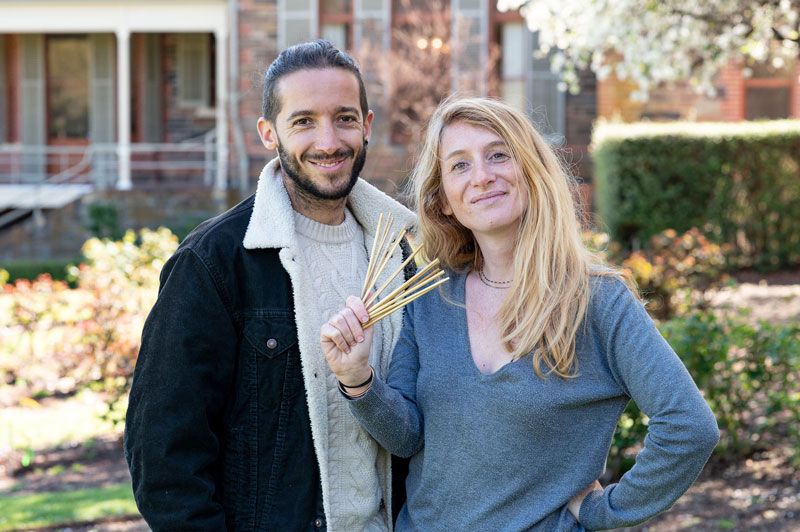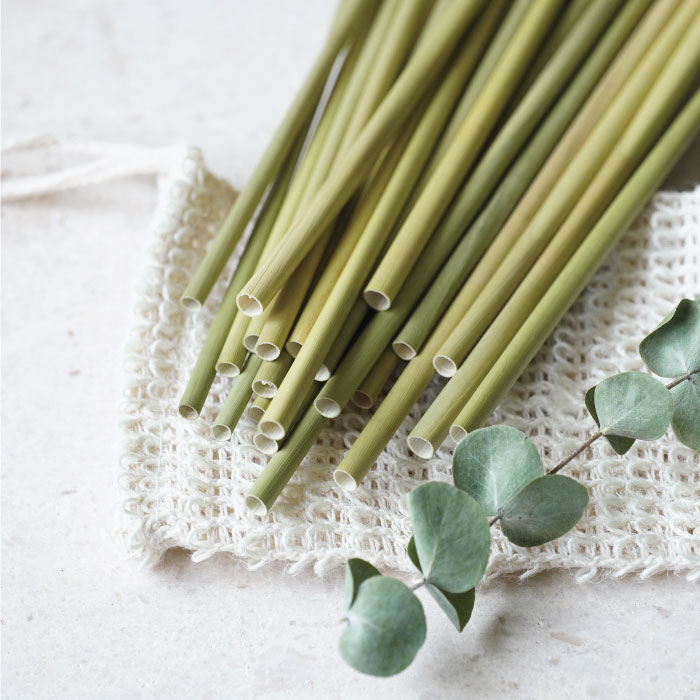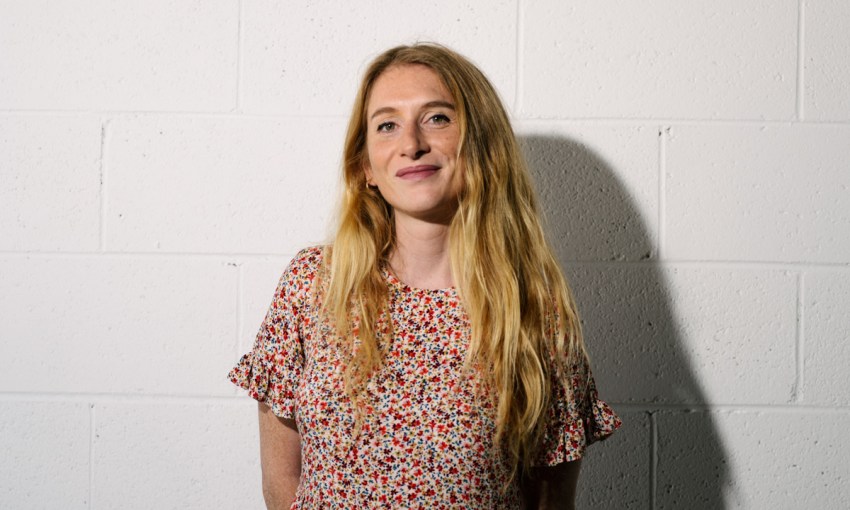An alumnus of InDaily's 40 Under 40 awards and a co-founder of sustainable straw company Mister RYE, Marion Vigot is now expanding her business to include a range of home-compostable packaging products.
Making better compostable food packaging with Marion Vigot
In 2019, Marion Vigot launched Mister RYE, a business making sustainable drinking-straws from South Australian organic rye, alongside her co-founder Alexis Branlard.
Find out more about Compostable Alternatives at their website.
Find out more about Mister RYE compostable straws here.
Marion Vigot is an alumnus of InDaily’s annual 40 Under 40 awards.
You can nominate yourself or someone you know making a positive impact on South Australia for the 2021 40 Under 40 here.
Entries close Friday, 2 April.
As South Australia’s single-use plastic ban, which came into effect on 1 March, continues to roll out, Marion is expanding the scope of her influence in the sustainability sector, launching Compostable Alternatives, a food packaging business creating and distributing a wider range of compostable single-use items to the hospitality sector.
The ban only includes single use straws, stirrers and cutlery in its first year, but by 1 March 2022, all polystyrene cups, bowls and clamshell containers will be prohibited from sale, supply or distribution in South Australia.
Compostable Alternatives will offer the original Mister RYE straws, as well as grass and coconut alternatives sourced from Vietnam, and will also offer home-compostable cling wrap and disposable gloves and coffee cups.
Many compostable packaging manufacturers, such as the popular BioPak, offer products which are only compostable through commercial entities. Marion says Compostable Alternatives’ products will be home-compostable.
“The purpose we have with Compostable Alternatives is to make things easy, not only for businesses but also for customers to do the right thing,” she says
“Commercially compostable products need to be disposed of in a green bin and go to a composting facility, whereas home-compostable products break down in any situation – they don’t require disposal into a green bin, they can be disposed of in your garden, your own compost or even in landfill, in the presence of oxygen and microorganisms.”

Mister Rye co-founders Alexis Branlard and Marion Vigot
Marion says there is much confusion and misinformation on the market.
“About 99 per cent of compostable products on the market are commercially compostable, not home compostable, and I think people see the word compostable and don’t differentiate between what it means to be home or commercially compostable,” she says.
“The fact that 80 per cent of Australian councils do not provide a green bin, and that people don’t know that some products need to be disposed of in a green bin, really creates this confusion and misinformation.”
Compostable Alternatives is the first Australian retailer to offer coconut straws made from fermented coconut water and sourced from a small factory in the Mekong Delta.
The grass straws are made from the naturally hollow Lepironia Articulata grass, removing the need for environmentally and financially costly shape manipulation.
“The straws are by-products of local agriculture and [their production] creates additional income for people living in rural areas of Vietnam – both straws are made from 100 per cent raw ingredients,” Marion says.
Marion tells CityMag it’s essential for customers to understand the full supply chain, not only on the product side, but also for them to know how much of their money is going to the producers and the intermediaries.
“It’s essential to create trust, to be transparent on all fronts. This creates credibility,” she says.
The ethical business model does have an impact on the price of Compostable Alternative’s sustainably and organically sourced products.
A large pack of 2000 coconut straws costs $340, while the original Mister RYE straws are $190 for a 1000-straw packet.
Comparatively, a 2500 packet of BioPak paper ‘Regular Green Biostraws’ costs $45.55 (excluding shipping and GST).
Marion acknowledges the cost discrepancy, but says cafés purchasing wholesale straws should take a less-is-more approach.
“We tell businesses, ‘Alright, if you want to switch to our products, why don’t you ask customers if they’d like a straw in their drink’. Don’t use a straw in every drink. Some customers use more than one straw, particularly ones that don’t last long, like paper straws,” she says.
“Comparing a café that uses paper straws in every single drink and a café that uses a coconut straw in one out of 10 drinks, for example, the [financial] cost might end up being the same, except the café that used the coconut straw will have a much better impact on the environment.”

Grass drinking straws available via Compostable Alternatives
Marion, who is originally from France, said being part of the 40 Under 40 alumni had given her the opportunity to grow her network in Australia.
“Multiple events organised with the 40U40 Alumni group allowed me to meet different and diverse people every time,” she says.
“I enjoy the meaningful conversation and the special connections it created, not like networking but like new friendships.”
You can nominate yourself or someone else you know who’s making a positive impact on South Australia and the world in the 2021 40 Under 40 here. Entries close on Friday, 2 April.




